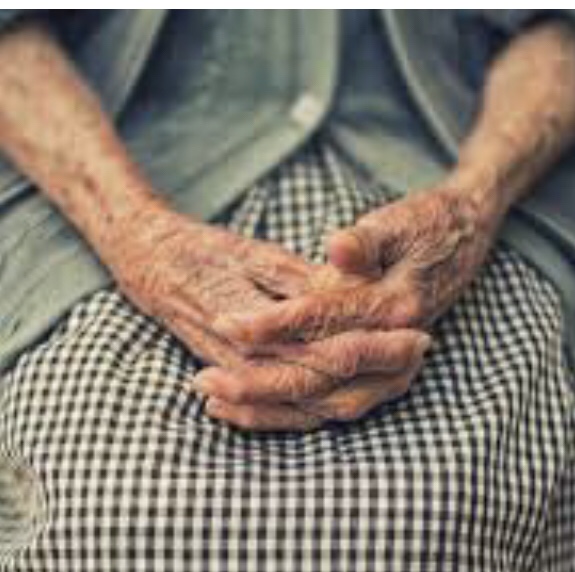
Those who might hope to portray a complete, fair, and accurate written portrayal of family history might best reconcile that women are typically shortchanged and woefully neglected in the process.
This insight motivates and inspires me to keep writing about by grandmother and pay tribute to her largely forgotten accomplishments.
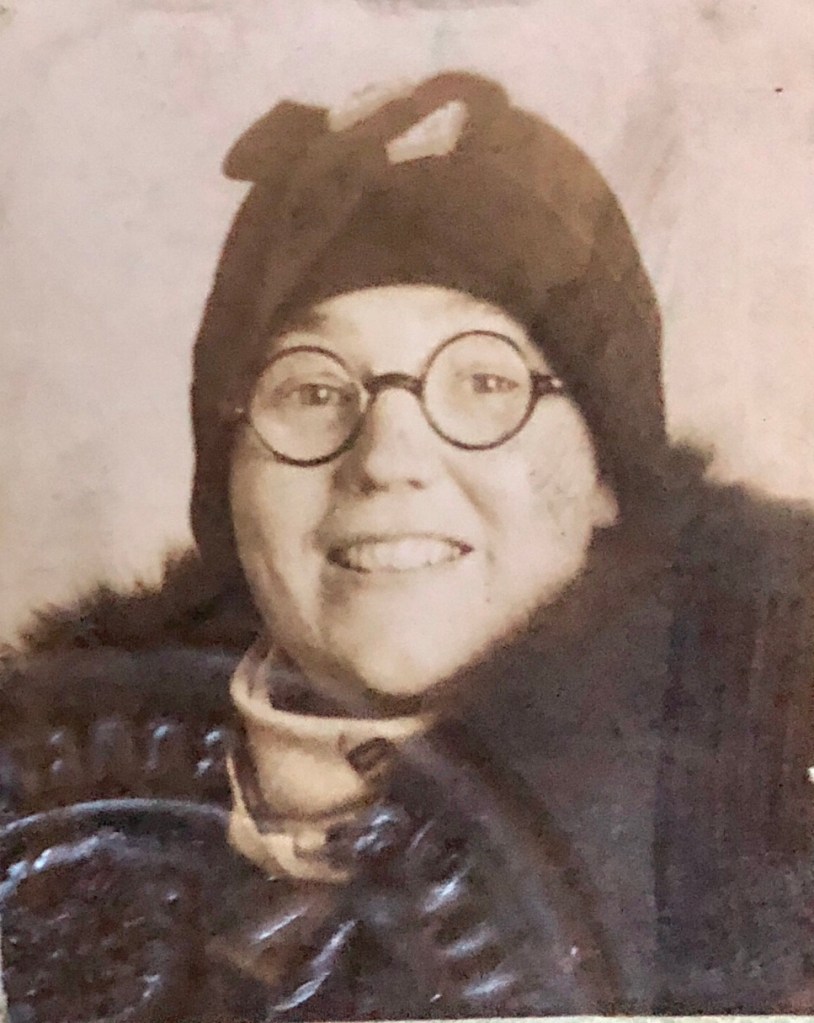
One might find it strange that a man is the one complaining about how written history has discriminated against women. For me, it is personal as I have come to discover how my grandmother’s very worthy story was almost carelessly discarded.
Allow me to build a case for standing up to encourage those who engage in genealogy activities to step up avoiding leaving behind courageous stories preoccupied with completing our family trees and collecting documents. Too many libraries of wisdom and knowledge are gone from our mom and grand mom hero legacies. Why?
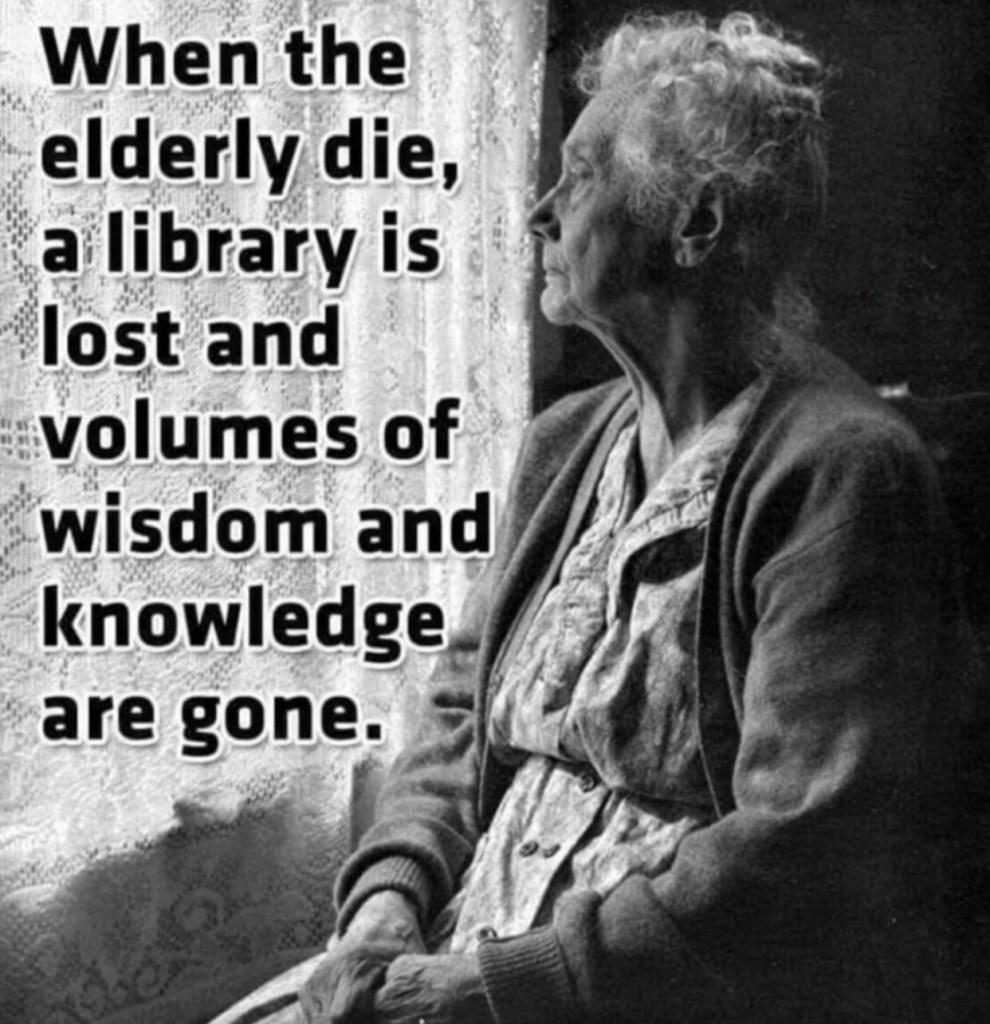
In my view, historians in particular have neglectfully failed to provide instructive and inspiring stories describing how women played key roles in defeating America’s Great Depression.
With my life drawing to a close, I came to realize that ancestry is not adequately fair and rarely is complete in properly remembering important stories of our grandparents.
In 2004, I began doing my homework investigating what written literature had to say about women doing battle with the American Great Depression catastrophe.
I read what Eleanor Roosevelt had to say to women of America. She rightly was prophetic in cheering on women suggesting how mothers might organize a response to tough family economic stresses and strains. Ms Roosevelt proclaimed that women led family battles waged in the home mattered greatly.
Family research efforts gathering genealogy focused exclusively on names and dates and family tree diagrams, often miss the value of hunting for and documenting stories.
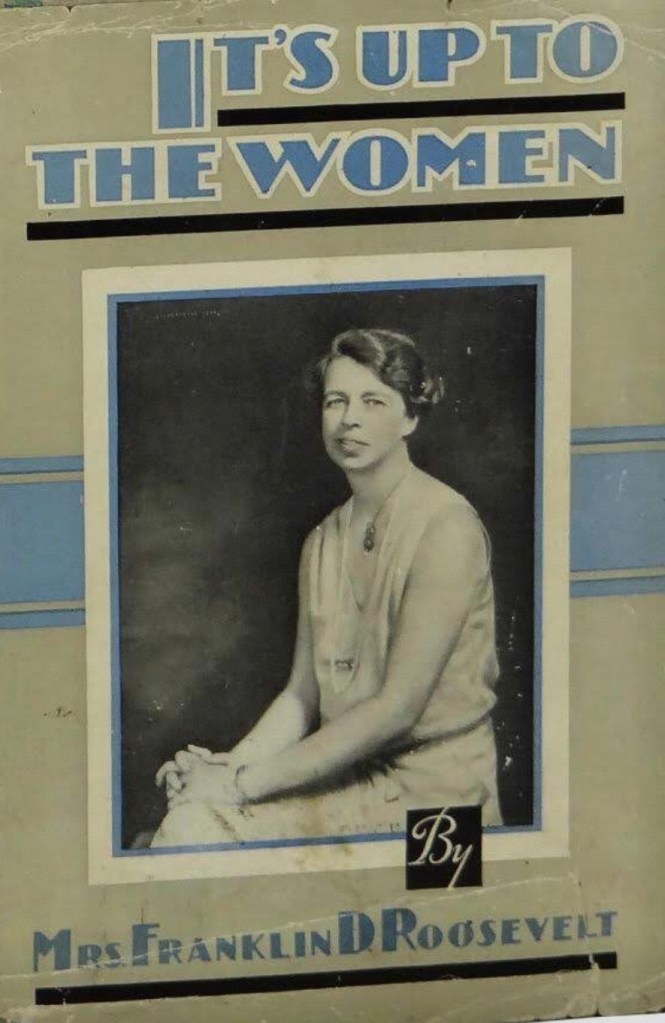
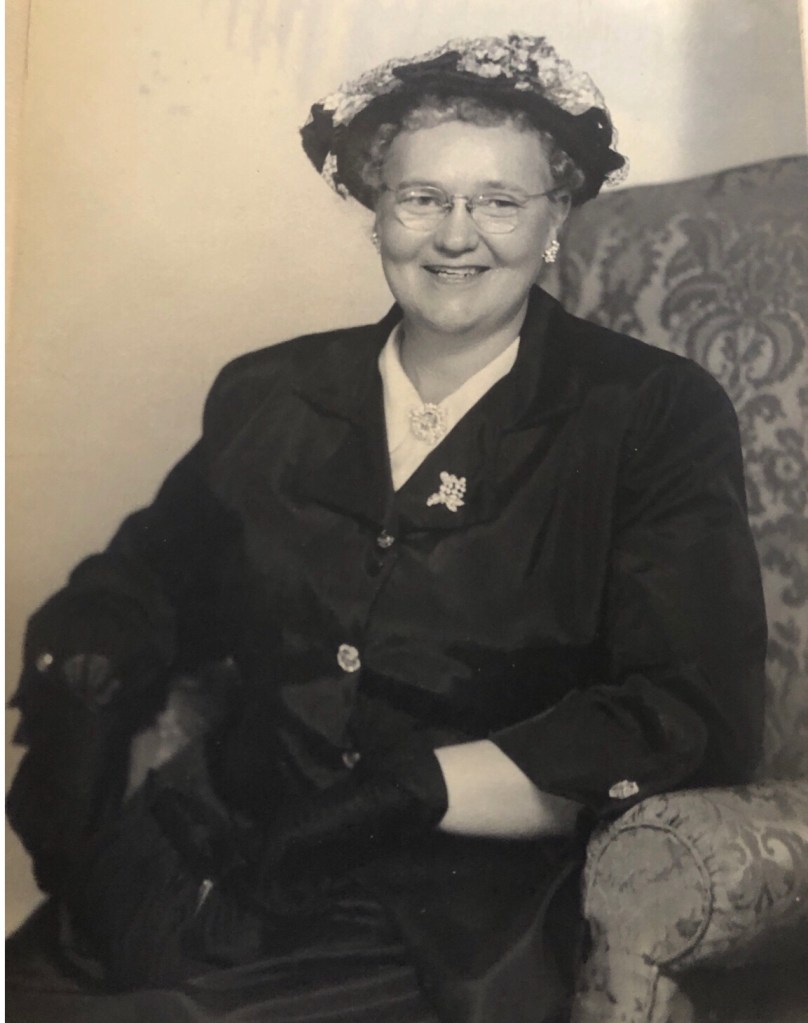
My grandmother, Maja Kallgren Wittenstrom’s unique Great Depression epic story calls out to be rescued from a pervasive trend of so many others being carelessly discarded and lost to oblivion. Genealogy based life lessons including significant stories clearly can serve to enrich and benefit others as a heritage and legacy to treasure.
Why have women’s stories been neglected and omitted?
Why was Maja’s story neglected?
Among the reasons suggested in response to these troublesome questions, I came to recognize that a superabundance of overshadowing stories focus on a recurring theme: “forgotten men.”
But, what about women?, I indignantly respond: Who will write about women? Is is too late? Notice the message of these popular book covers.
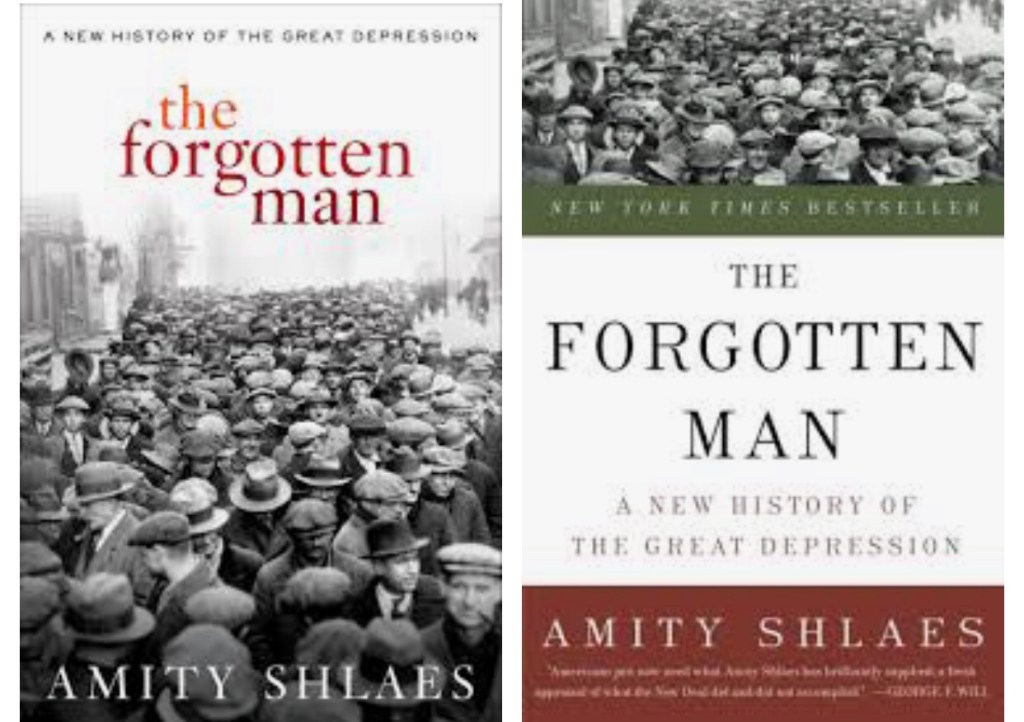
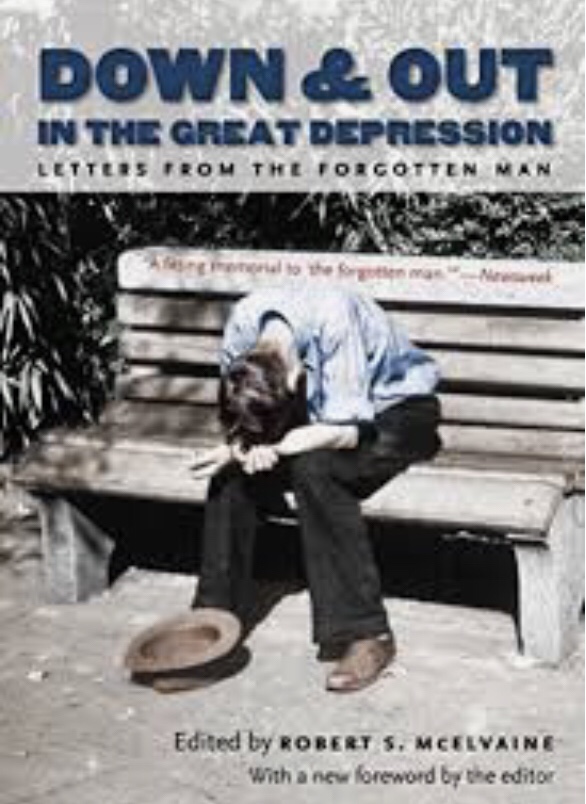
From an early age, (born in 1948 and living next door to Grandma Maja’s) I was gifted with experiencing a close relationship during my formative years. I had abundant access to numerous interview opportunities and stories.
Maja told colorful and enchanting stories about her life in Sweden before coming to America in 1922 on holiday. Maja decided to raise her four children in Chicago. Maja and her American Swede husband decided to bring their version of an American Dream to life.
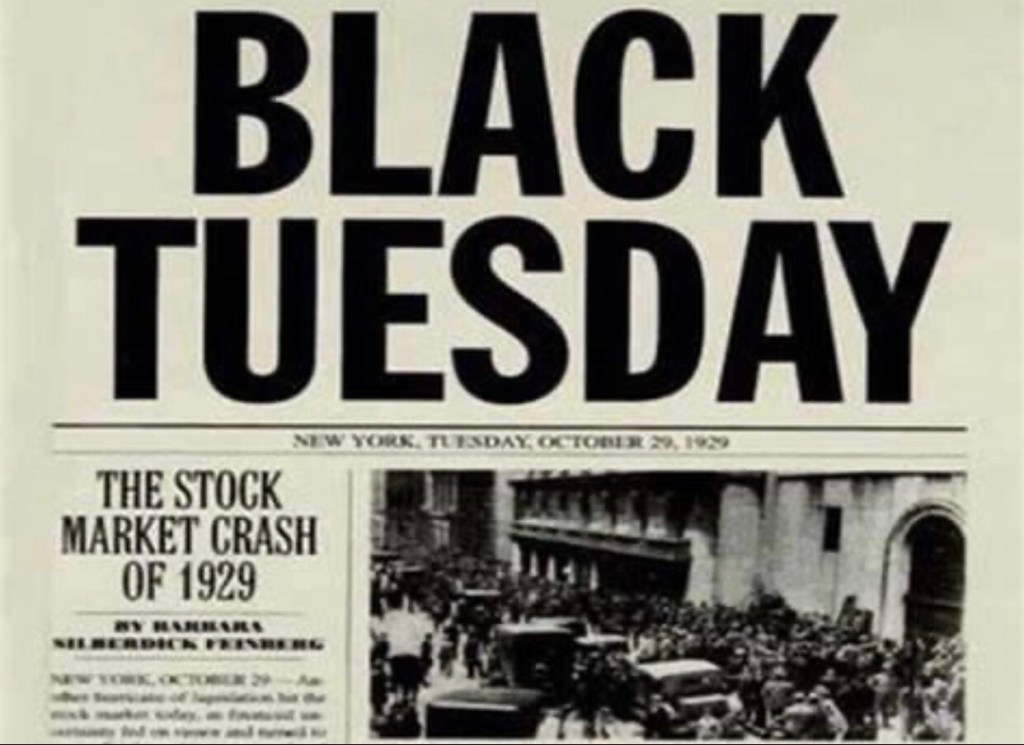
In 1929, the American stock market crashed and soon after the pervasive Great Depression terribly devastated American family life. The Wittenstrom family auto repair business failed. In 1932, Maja’s husband, Carl Oscar died suddenly of a heart attack. (The grandfather I would never meet)
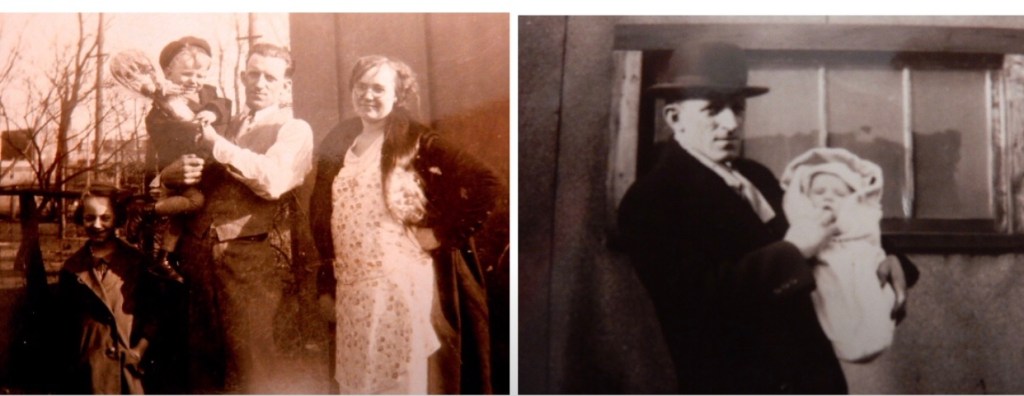
Grandma Maja was a widow. Her mighty story of struggle to survive began. She was not alone as other American women like Maja were forced to find ways to survive. Maja had learned important life lessons in Sweden. She observed her parents entrepreneur store owners.


She observed brave “timmerflotarre “ those who balanced on floating logs in the local river. Facing danger they were dedicated to breaking up log jams and keeping the trees moving downstream to the mill. This became a metaphor for guiding Maja’s life. She too had to break up logjams of adversity challenges that stood in her way.
Note: Her story is captured in detail in my book: My Maja A Grandson’s Tribute. (Amazon Books, 2020)
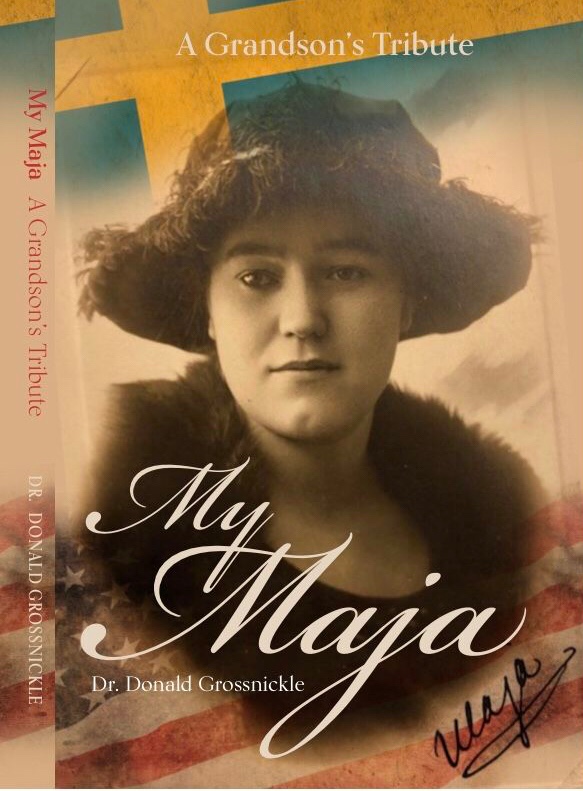
Explore below a photo history of Depression Times and women and family, and widow plight.
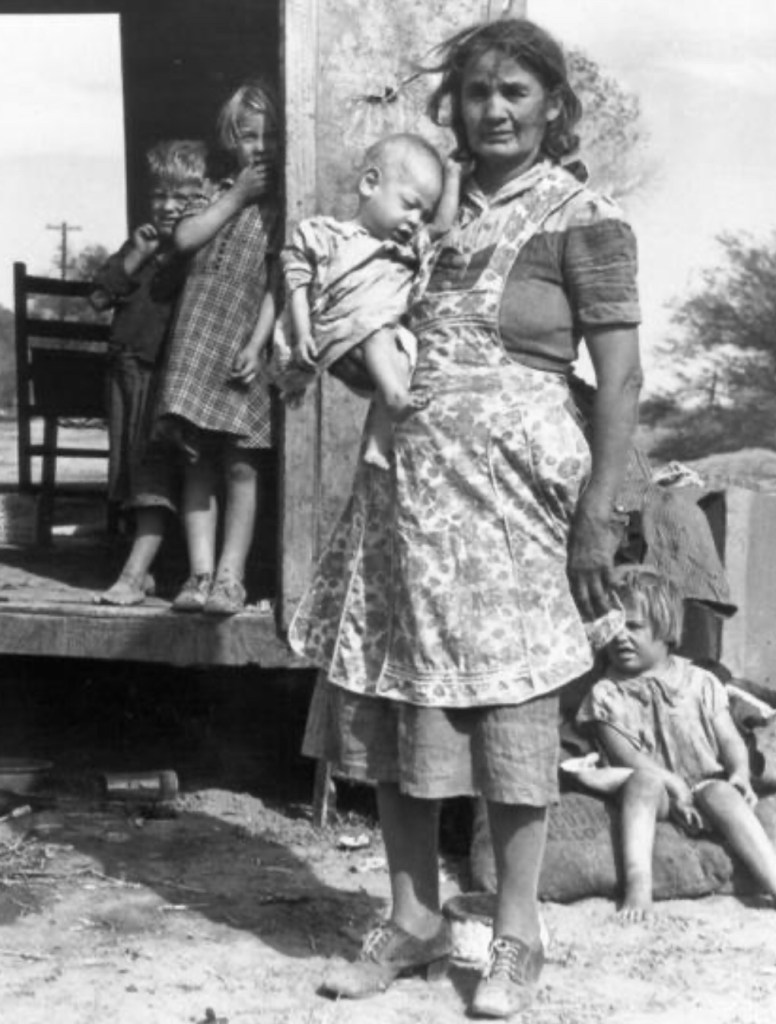
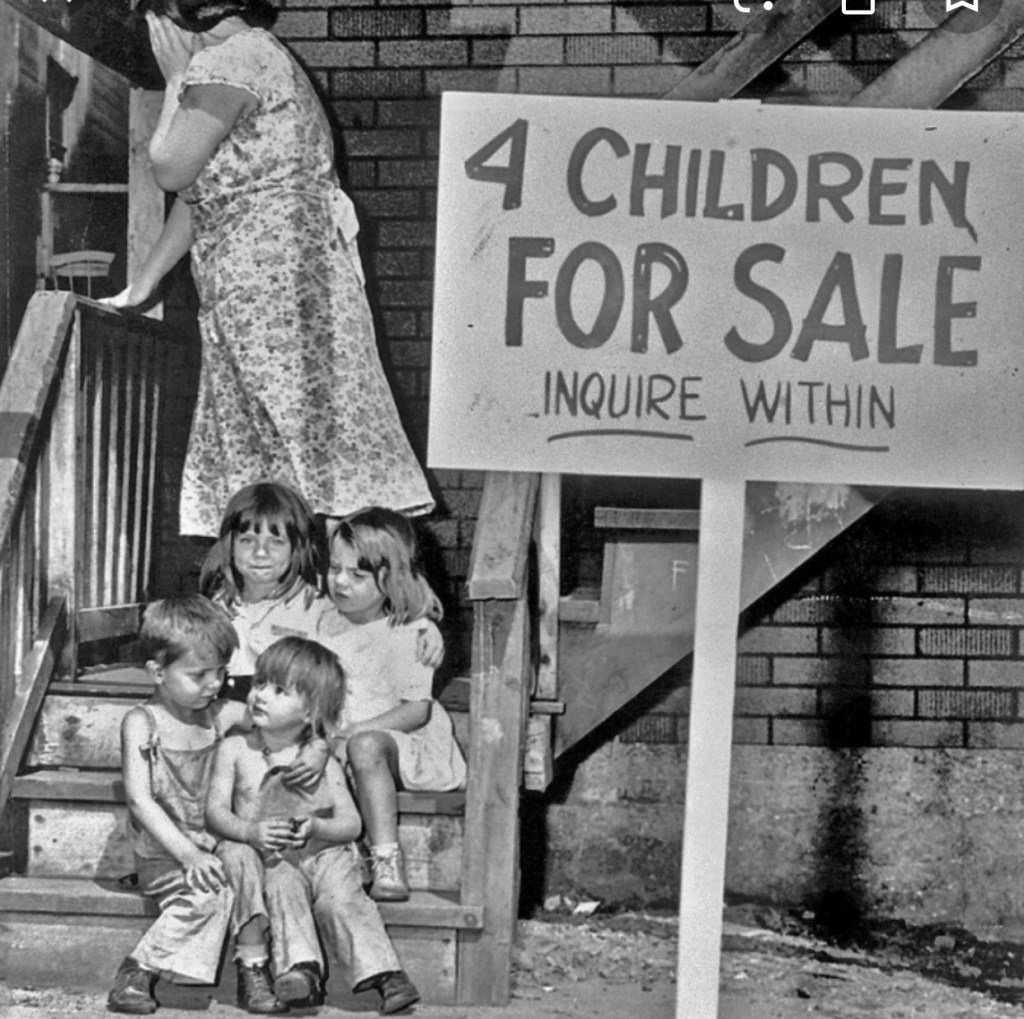
The tough times from 1932 to Grandma Maja’s death in 1969 were especially eventful.
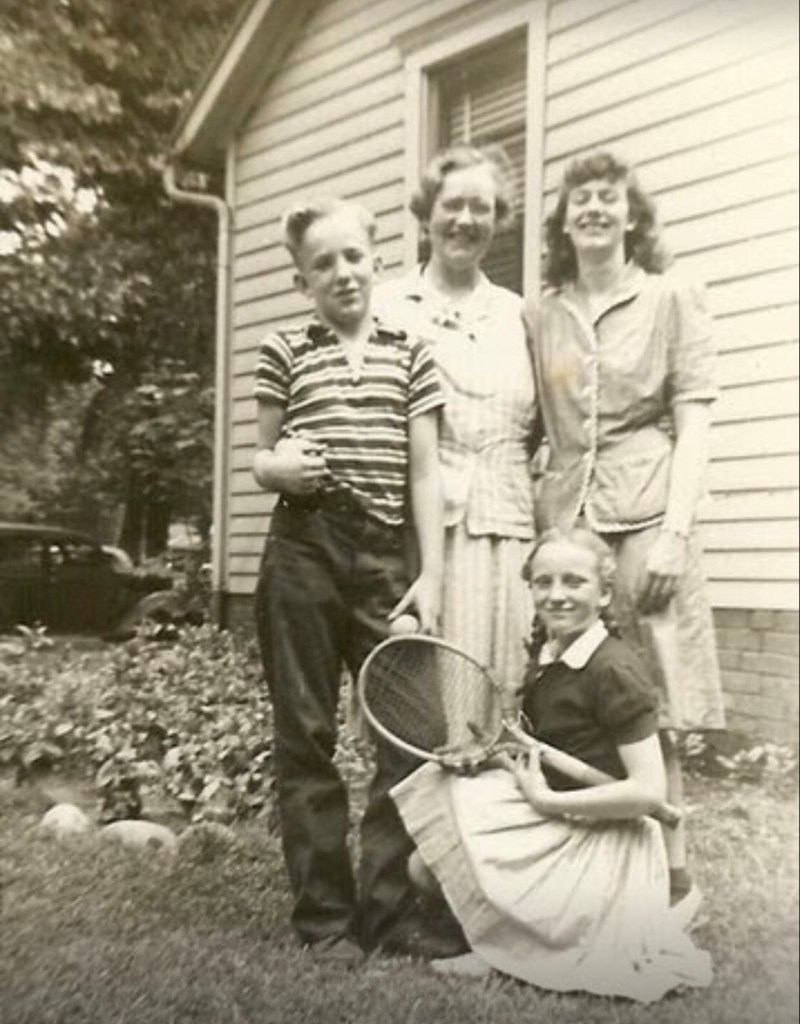
Over and over I asked my mother Dolores, Linnea, and Peter….”how did she do it?…How did your mother manage?”
Fact is, Grandma Maja buckled under the pressures. I have many stories to relate about the breakdown. Today, her depression and exhaustion of the day, might be called, “PTSD or, post traumatic stress disorder.
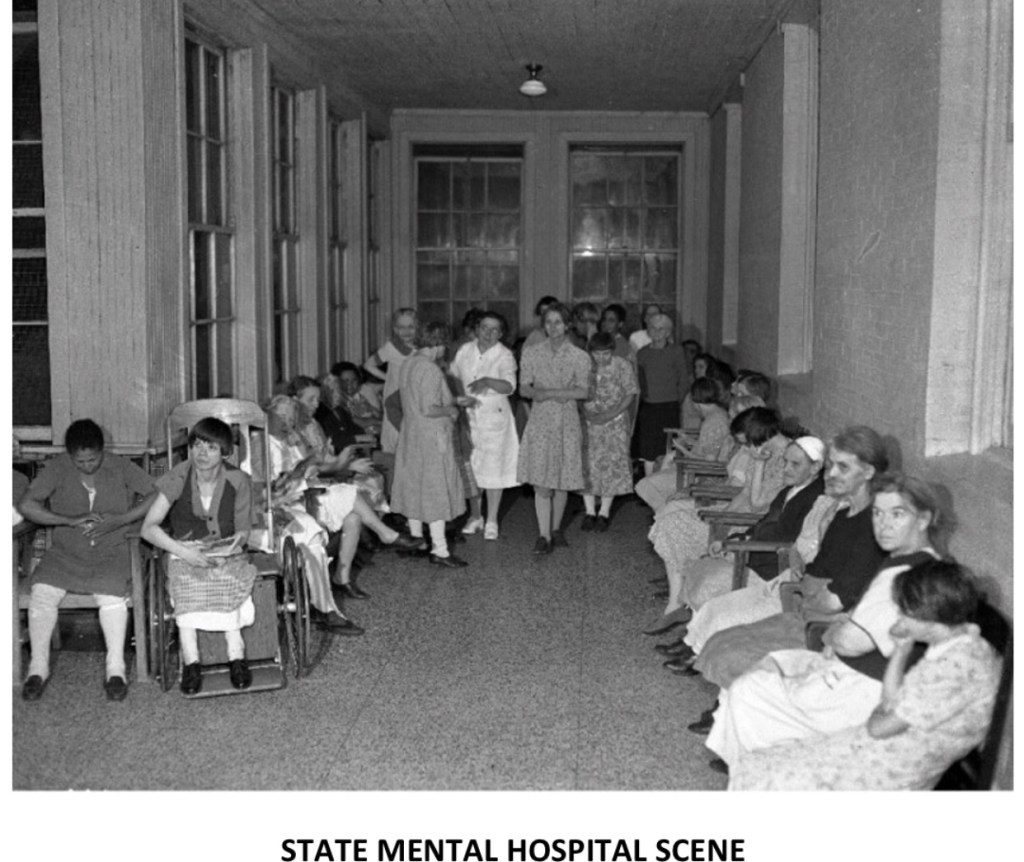
Maja voluntarily checked in to Dunning State Mental Hospital. Her children were farmed out to relatives.
The story of her treatment, recovery and being reunited with her children is a long story. Survival was traumatic, yet Maja would rally and in the end play the role of hero. Maja did what she had to do to escape the depression and Great Depression woes and proceeded on a trajectory to wellness and conquest.
Telling the story of Maja’s breakdown is difficult. Many details will be skipped. Perhaps genealogy is intentionally kind in selectively omitting some history?
Genealogy is not fair, and Genealogy is rarely Complete.
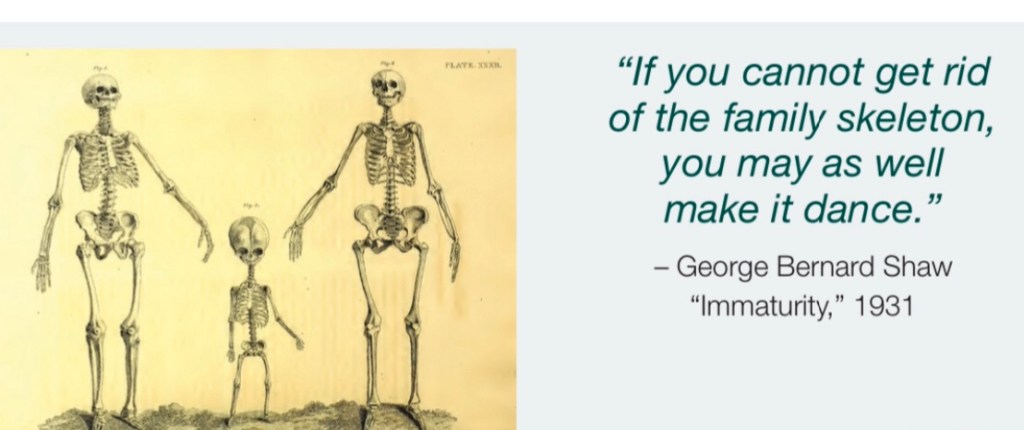
For this blog, I will share a few images which help tell the story of Maja’s treatment and recovery. Disclaimer: Maja or family members successfully kept most of these details a secret.
Until my genealogy research took aim at exploring events, the telltale family history details remained as skeletons hidden in a closet.
For whatever reasons, this Maja survival story of horrors in a state mental hospital were buried. Included are a few images that serve as a tour glimpses of cruel ordeals Maja endured. Maja was determined to once again gather her children to herself and proceed with her mission to raise them to be resilient.
First, Maja was subjected to scalding hot baths and ice cold shock treatments designed to break the depression.

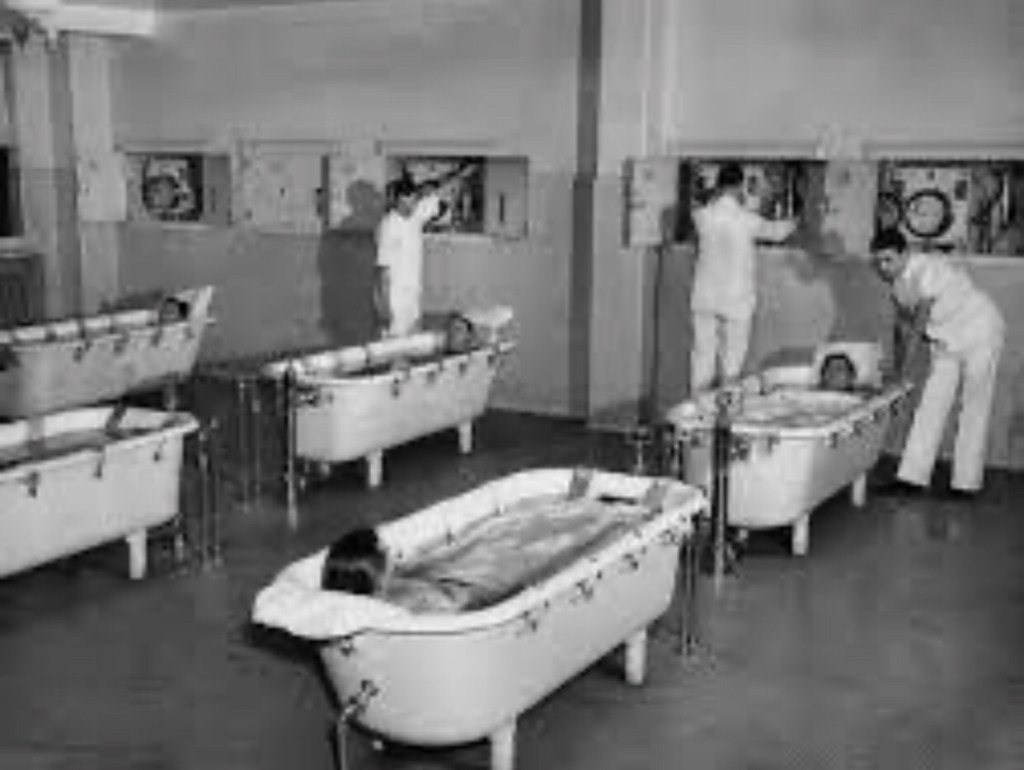
Next, experimental electro-convulsive shock treatments.
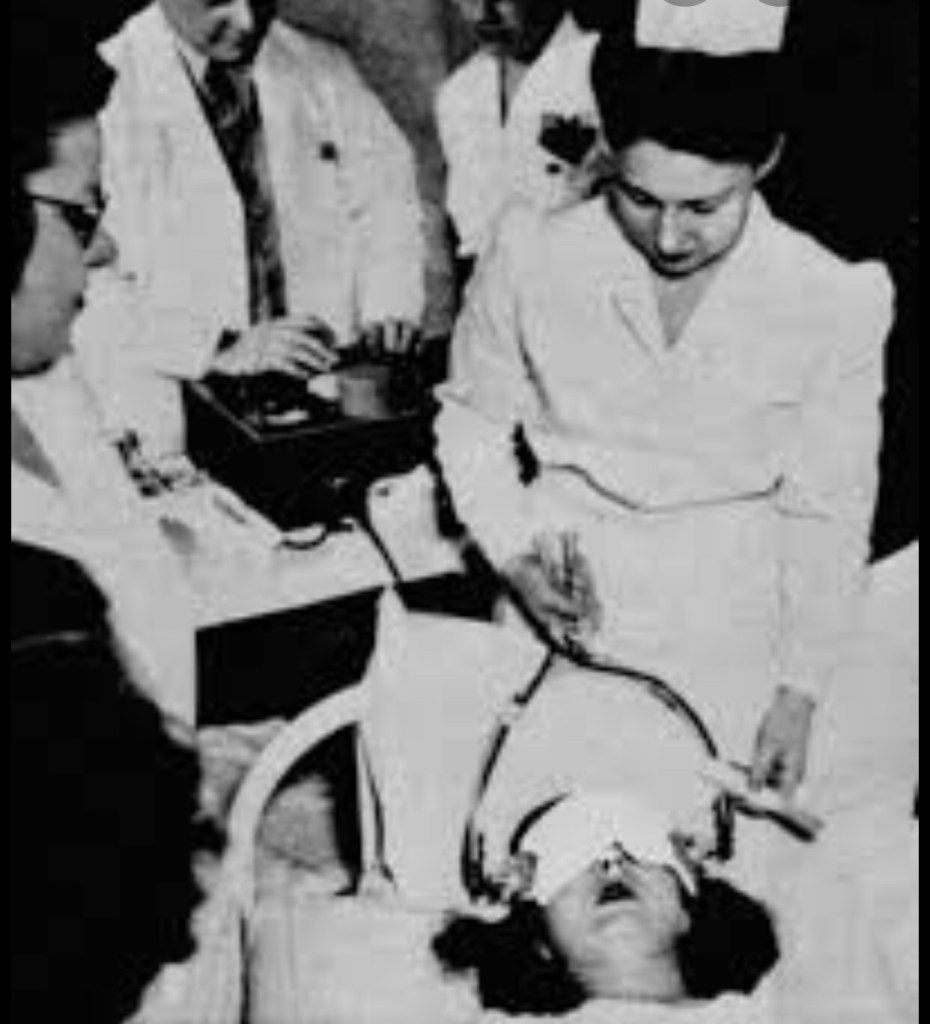
Note: The sadness in retelling Grandma Maja’s story is outweighed by a desire to make known the depth of character shown by this courageous woman.
Maja recovered. From 1948 when I was born, until my 21rst birthday, Maja and I experienced an amazing positive relationship. She became a best friend, mentor and role model of resilience.

In a sense, the above photo completes a partial genealogy. The proud photo supplies a missing story that supplements the carefully researched family tree Maja left behind below:
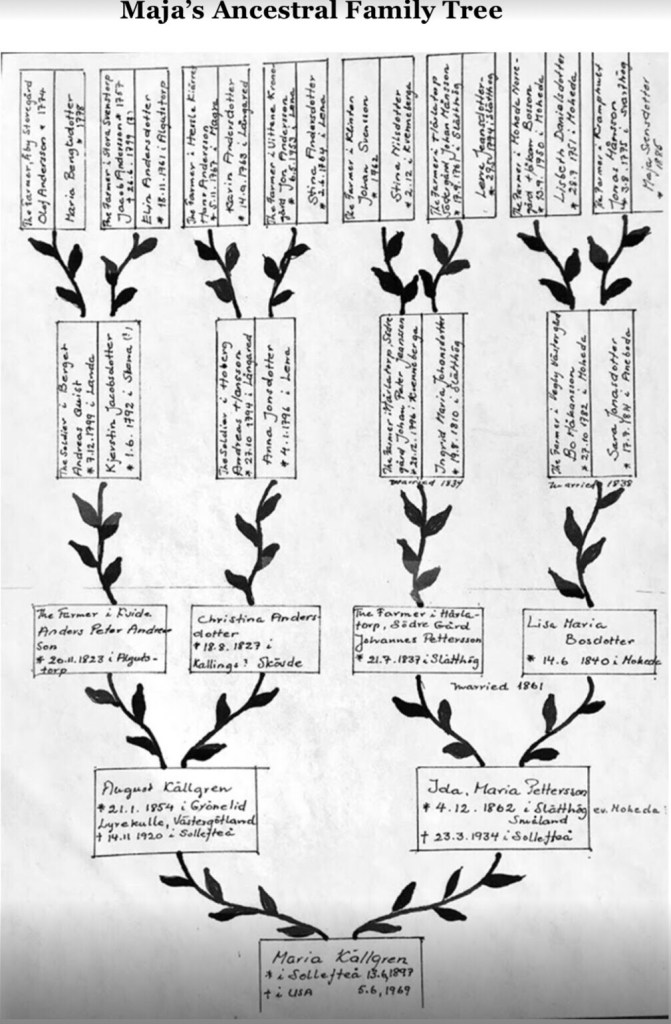
Maja’s goal in life was to guide, and teach her children the attributes and character they needed to become gritty independent and resilient rugged Swedish American citizens.
College degrees, raising families helped the children prove that Maja would join a long line of ancestors who proved themselves worthy to be honored and remembered.
They lost their father and then their mother to the houpital. Tell the story of the emotions the children went through
LikeLike
You are so right. Their mother went through hell and so did the children. Thanks.
LikeLike
That really touched my heart as I heard rumors of people wanting to commit suicide after depression.
LikeLike
Hi Eileen: You are right on target. If you read my book you can examine the whole story. It is inspiring and I am quite sure you will enjoy the book. Thanks for reaching out. Blessings
LikeLike
My 85 year old Swedish-American Mother just died a month ago. What a wealth of knowledge and family stories we have lost with her passing. She had spent time with all of her Swedish cousins over her lifetime. Now we have 100’s of Swedish letters written between her Mother and her swedish relatives from 1925 and on. I would love to have them interpreted and placed on a journal for us to read. We still continue at my home with the traditional type of Christmas Eve meal which my Mom grew up having–Rice pudding, Limpa, Meatballs, Glogg, etc.
LikeLike
Yes, fantastic treasure. I know a letter translator who might help.
LikeLike
Oh the stories and history I have missed by not knowing my father’s family. They immigrated from Sweden several generations ago and settled in MN & SD. That is just about all I know. Listen to what your parents are saying when you are little and you will be able to piece things together when you are older.
LikeLike
Very well said. Only wish we knew.
LikeLike